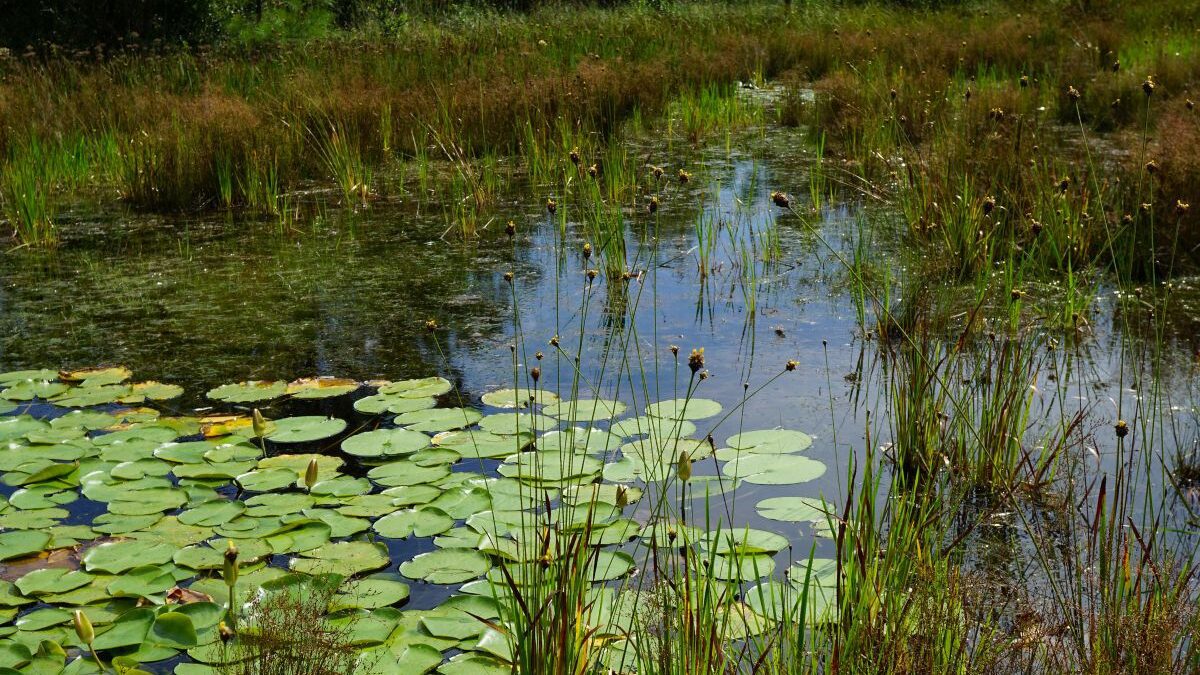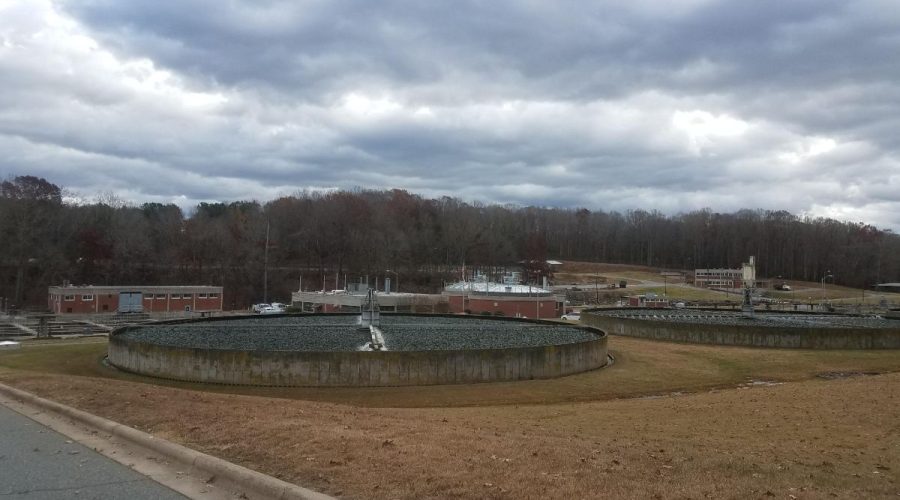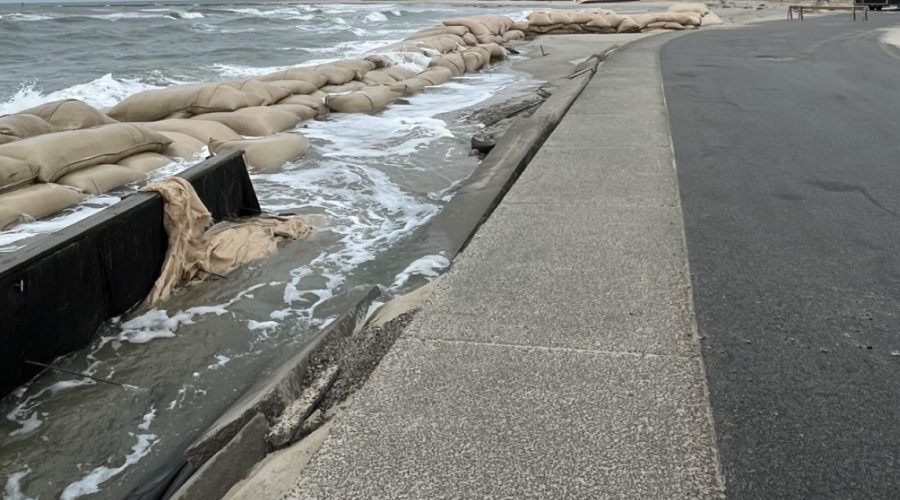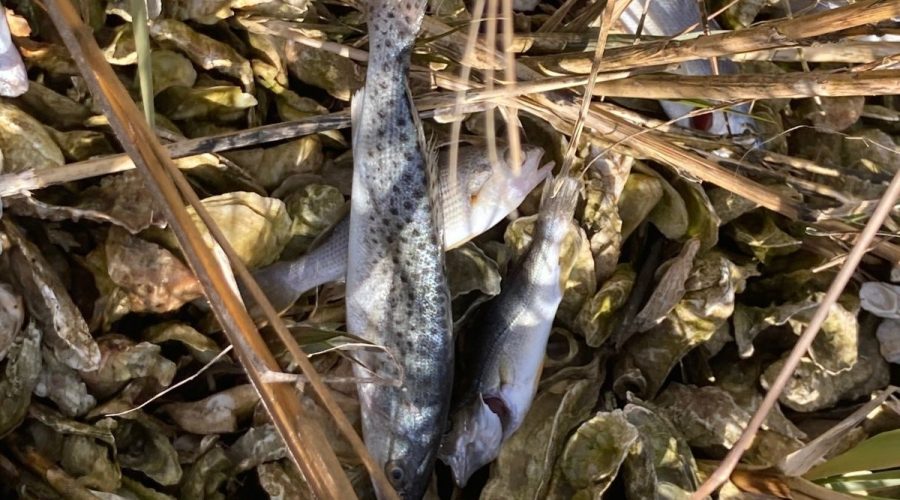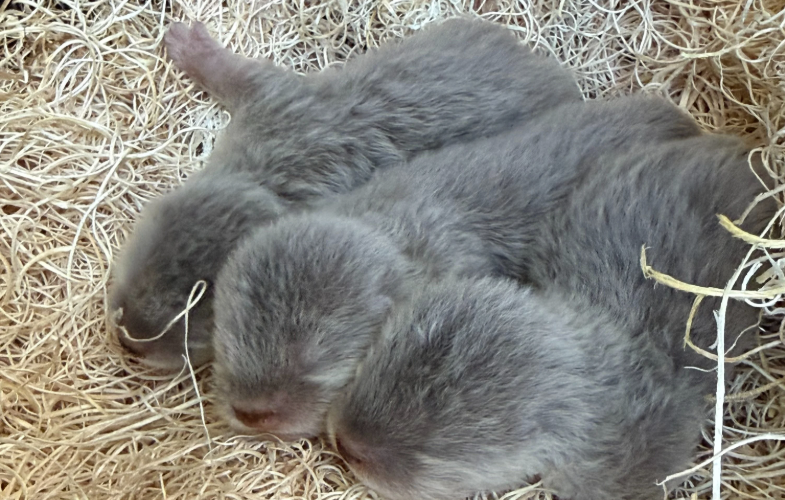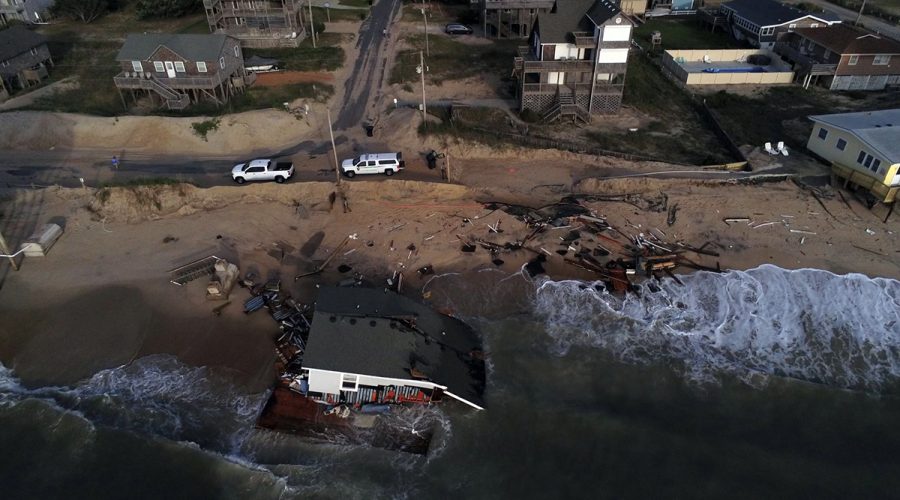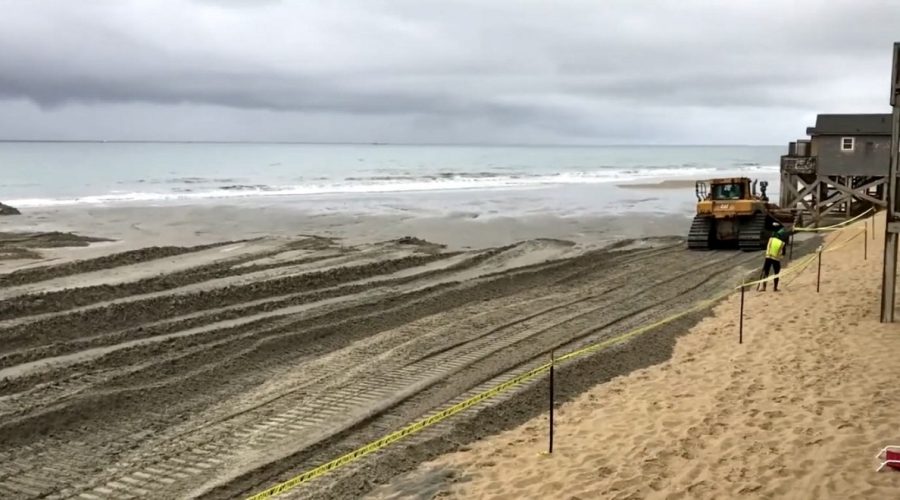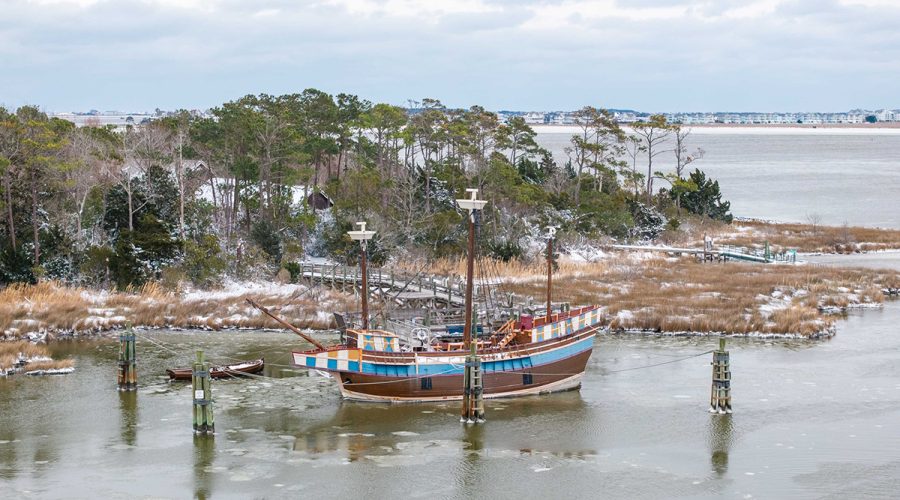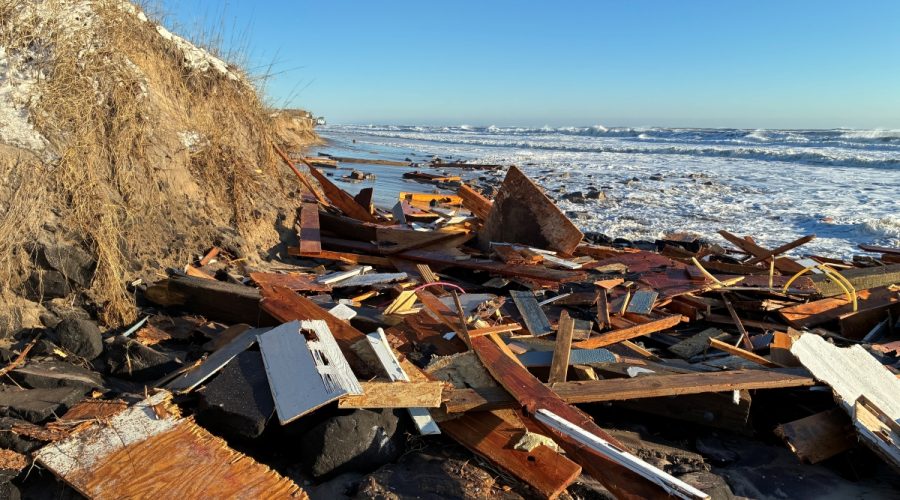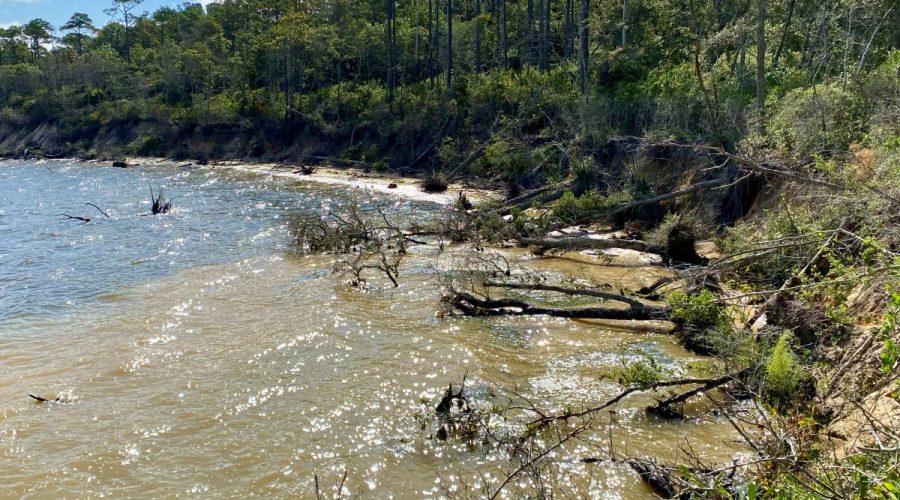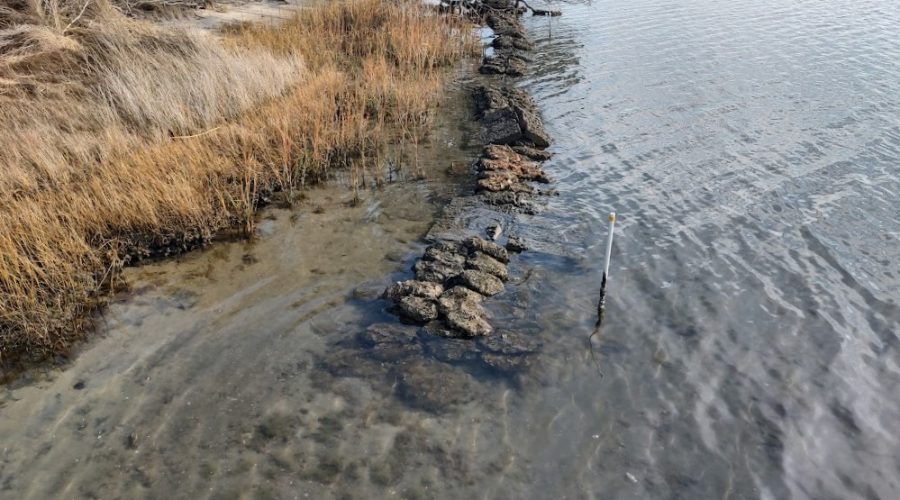Population growth on the North Carolina coast has ramped up pressure on conservation groups to acquire and set aside land, such as the more than 2,000 acres in coastal counties recently protected from development, areas with natural landscape features that reduce flood risk, improve water quality and provide vital habitat.
Spotlight
With court relief, work resumes on Virginia offshore wind
Dominion Energy’s 2.6-gigawatt Coastal Virginia Offshore Wind project, which was ordered by the Trump administration to stop work in December, is now on track for completion by early next year — but at a considerably higher cost.
Judge upholds that DEQ can set wastewater permit limits
A Wake County Superior Court decision upholds that N.C. Department of Environmental Quality has the authority to set limits of 1,4-dioxane discharges from public wastewater utilities.
Ocean Isle seeks to modify permit, nourish beach at east inlet
Officials in Ocean Isle Beach seek federal approval to have up to 70,000 cubic yards of sand placed east of the Brunswick County town’s terminal groin where erosion gnaws at the shoreline in front of a luxury neighborhood.
WRC proposes temporary spotted seatrout season closure
Public comments on the N.C. Wildlife Resources Commission’s proposed temporary rule to close recreational spotted seatrout harvesting in inland and joint fishing waters April 6 – June 30 will be accepted through March 13.
Officials break ground on ‘much-needed’ Carteret boat launch
Rep. Celeste C. Cairns, Carteret County commissioners and others staged a ceremonial groundbreaking Friday for a new boat launch facility on Bogue Sound in the western part of the county.
Vote to name new otter pups at NC Aquarium at Fort Fisher
The North Carolina Aquarium at Fort Fisher is getting out the vote on names for three otter pups born in December.
Causey urges council to help Outer Banks as more homes fall
“There’s some angry people out there,” Insurance Commissioner Mike Causey told members of the Council of State Tuesday, referring to the four houses that fell into the ocean last weekend, a total of 31 homes since 2020, and calls to end the ban on beach hardening.
Buxton beach nourishment focus of community meeting
Dare County officials will be joined by representatives from the National Park Service – Outer Banks Group at a public meeting to provide general information about Buxton’s beach nourishment project scheduled for this year.
Elizabeth II unable to leave for overdue maintenance … again
Once again, shoaling in a Roanoke Sound channel is preventing the state attraction Elizabeth II, a vessel representative of Lost Colony-era ships, from leaving its moorings at Roanoke Island Festival Park for maintenance.
Winter storm takes 4 Buxton houses, leaves inches of snow
The weekend storm that covered North Carolina with more than a foot of snow in some places caused four unoccupied Buxton houses to collapse in about 24 hours on Cape Hatteras National Seashore beaches.
Researcher Annie Harshbarger reveals pilot whale behavior
The doctoral candidate at Duke University is employing new whale-tagging technology to reveal highly detailed information about pilot whale hunting habits, answering old questions about the specifics of the species’ behavior.
Despite judge’s order, communities in 20 states still waiting
Coastal communities in line for announced federal storm resilience funding, which the administration pulled last year and that a judge last month ordered immediately and, permanently restored, are still wondering when the money will come.
Fort Raleigh closer to installing shoreline erosion protection
Both the National Park Service and state have comment periods open on an erosional control measure along the shoreline of the national historic site on Roanoke Island.
Thriving oyster colonies on living shorelines boost protection
While it’s not exactly “build it and they will come,” nature-based shoreline erosion-control structures such as living shorelines offer increased protection when they successfully attract and grow oysters.
Former Sea Grant Director BJ Copeland leaves coastal legacy
Dr. B.J. Copeland, 89, who died Wednesday, Jan. 14, 2026, influenced coastal science and management in the state for decades.

